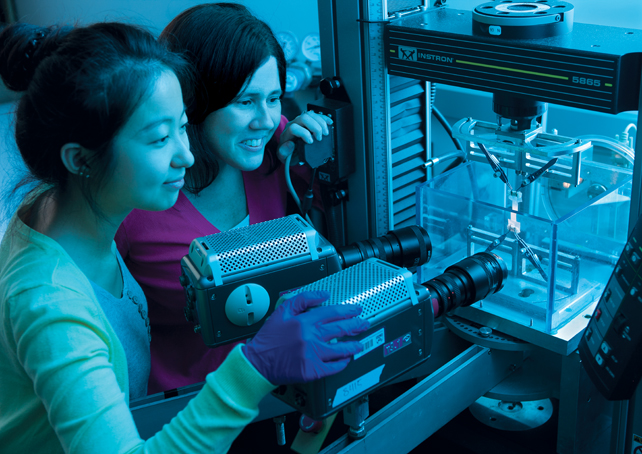Featured Stories
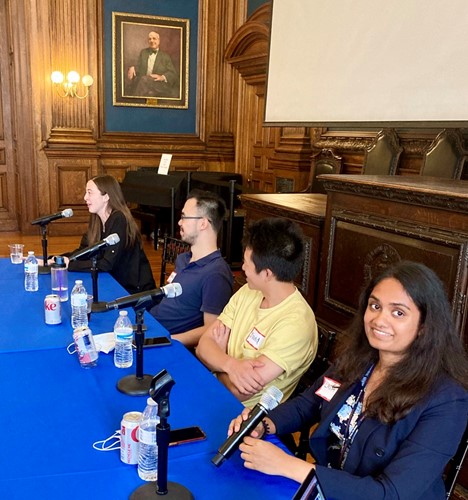
Book Discussions and Bonding at the Bioengineering Retreat
This year, the lineup of new student orientation activities included a new event: the first bioengineering retreat for incoming Ph.D. graduate students. Sitting in the historic Mitchell Hall at the College of Physicians, the 2022 Ph.D. cohort participated in a fun and educational half-day program that included a series of bonding activities, small-group conversations, and panel discussions. Current members of the Graduate Association of Bioengineers (GABE) planned the program to strengthen personal connections among students and to lend some advice to the newcomers as they embarked on their scholastic journey. READ MORE
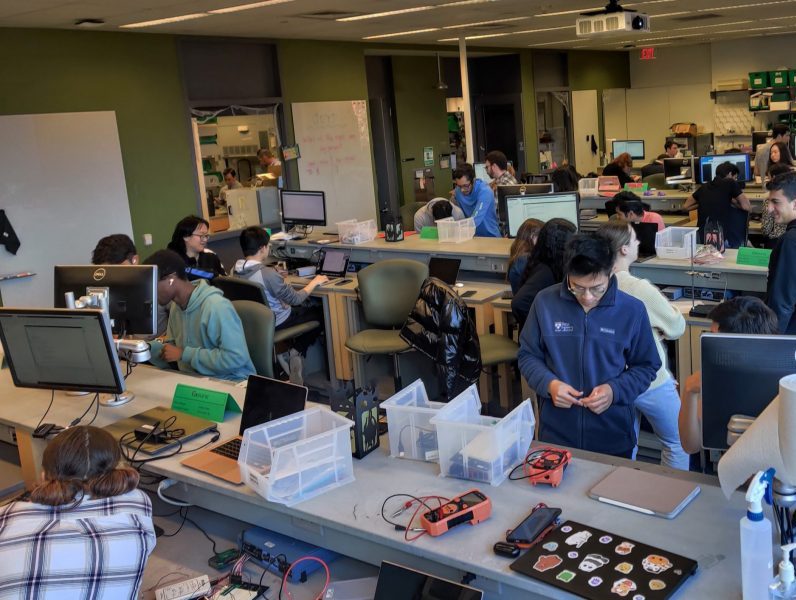
“Creativity needs to let go of control”: Penn BE Labs Featured on the Shifting Schools Podcast
Sevile Mannickarottu, Director of Educational Laboratories in the Department of Bioengineering (BE), was interviewed in a recent episode of Shifting Schools, a weekly podcast that hosts educators and thought-leaders in conversations about the latest trends in education and EdTech. Mannickarottu, a Penn Engineering alumnus, runs the George H. Stephenson Foundation Educational Laboratory & Bio-MakerSpace, also known as the Penn BE Labs. In addition to being the primary teaching lab for Penn Bioengineering, the Penn BE Labs has grown into “the world’s only interdisciplinary Bio-MakerSpace.” READ MORE
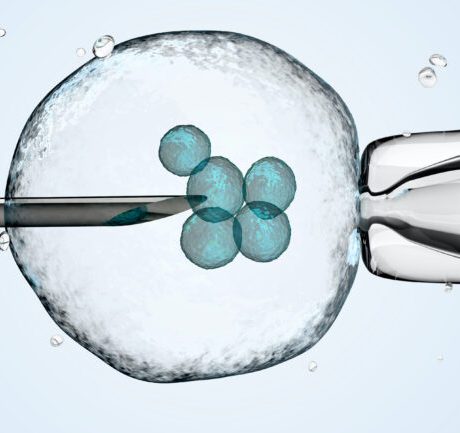
New Single Cell Analysis Tool
Research published in Cell Genomics led by University of Pennsylvania Professor of Bioengineering Arjun Raj has resulted in the development of ClonoCluster, an open-source tool that combines unique patterns of gene activation with clonal information. This produces hybrid cluster data that can quickly identify new cellular traits; that can then be used to better understand resistance to some cancer therapies. “What’s exciting is that this tool allows you to draw new lines around your clusters and explore their properties, which could help us identify new cell types, functions, and molecular pathways,”says Lee Richman, first paper author and a former postdoc in the Raj lab who is now at Brigham and Women’s Hospital in Boston. READ MORE
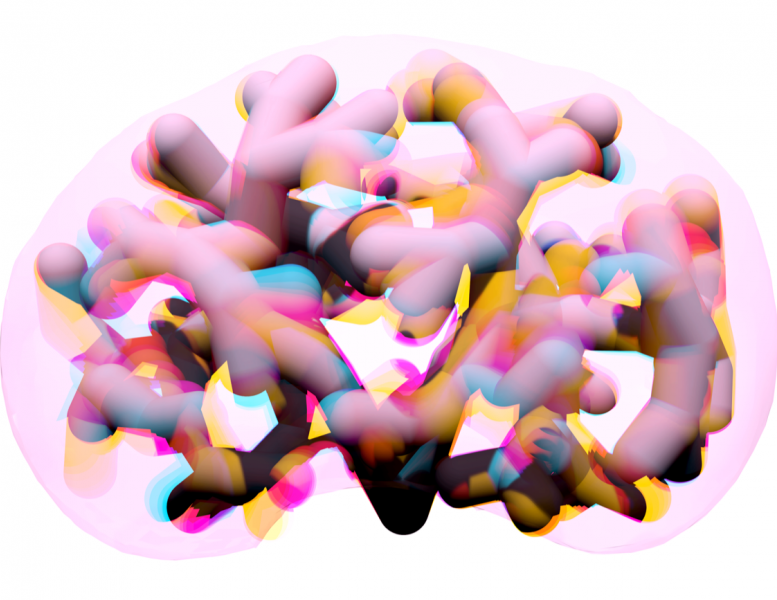
Understanding the Physics of Kidney Development
Research published in Developmental Cell led by Alex J. Hughes, Assistant Professor in the Department of Bioengineering, demonstrates a new physics-driven approach to better visualize and understand how a healthy kidney develops to avoid organizational defects that would impair its function. While previous efforts have typically approached this problem using molecular genetics and mouse models, the Hughes Lab’s physics-based approach could link particular types of defects to this genetic information and possibly highlight new treatments to prevent or fix congenital defects. READ MORE

Dani Smith Bassett Receives 2022-23 Heilmeier Award
Dani Smith Bassett, J. Peter Skirkanich Professor in Bioengineering and in Electrical and Systems Engineering in Penn Engineering, has been named the recipient of the 2022-23 George H. Heilmeier Faculty Award for Excellence in Research for “groundbreaking contributions to modeling and control of brain networks in the contexts of learning, disease and aging.” The Heilmeier Award honors a Penn Engineering faculty member whose work is scientifically meritorious and has high technological impact and visibility. It is named for the late George H. Heilmeier, a Penn Engineering alumnus and member of the School’s Board of Advisors, whose technological contributions include the development of liquid crystal displays and whose honors include the National Medal of Science and Kyoto Prize. READ MORE
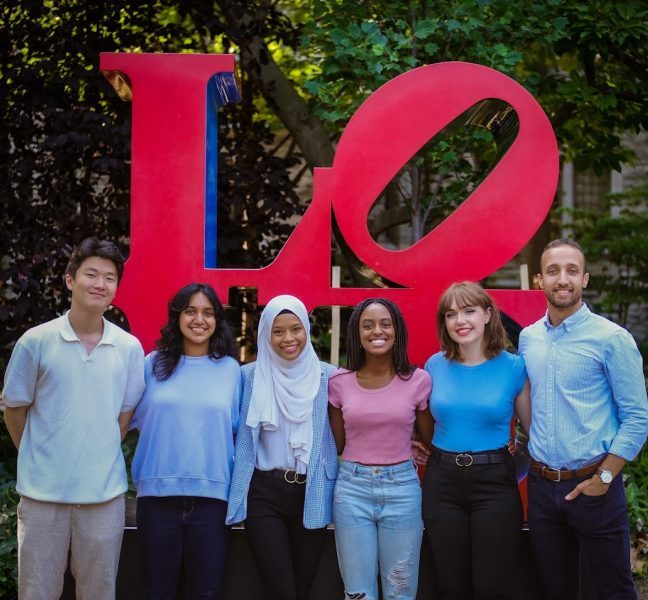
2022 Penn iGEM Team Wins Gold Medal in Grand Jamobree
The 2022 University of Pennsylvania iGEM Team took home a gold medal in the iGEM Grand Jamboree. This international competition of multidisciplinary teams of graduate and undergraduate students presenting original projects in synthetic biology culminated in the in-person Jamboree event held in Paris, France in October 2022. Over 370 judges awarded prizes and medals to the 350+ teams representing over 40 countries. The 2022 Penn team was awarded a Gold Medal for their project “Photocreate,” a toolbox to control intercellular communication using optogenetics. Their plasmid constructs are designed to control protein secretion, display and shedding using a photocleavable protein, Phocl. READ MORE
BE Events
Why Penn Bioengineering?
Welcome to Penn, home to one of the oldest and most successful bioengineering departments in the United States. Our undergraduate and graduate programs consistently rate among the top 10 in the country. Bioengineering capitalizes on Penn’s great institutional strengths, including a compact urban campus of 12 separate schools, geographic proximity linking the engineering and medical schools within one city block, and a collaborative, integrated environment.
Penn Bioengineering endorses the University’s commitment to diversity outlined in the Penn Compact 2020. We strive to attract a diverse community of students, faculty and staff in order to provide an accessible, rigorous engineering education for our students, and to improve our local and global communities through engineering education and research. Read More
Learn More
